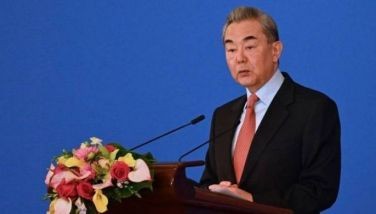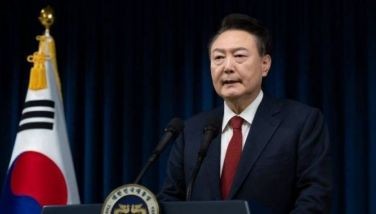News Analysis: Egypt-Qatar ties at stake after Doha pro-Brotherhood statement
CAIRO (Xinhua) - Egypt-Qatar bilateral relations are currently at stake after Doha issued a statement Friday, lashing out at the Egyptian interim government for its movement that branded the Islamist Muslim Brotherhood as a terrorist group, political experts said.
Ties between Egypt and Qatar, a firm supporter of former Islamist president Mohamed Morsi and his Brotherhood group, have been deteriorating since the military ouster of Morsi in July, following massive protests against his one-year turbulent rule.
The Qatari Foreign Ministry statement expressed concerns over " the increasing number of victims of security crackdown on protests all over Egypt," criticizing the decision of "designating popular political movements as terrorist organizations."
In response, Egypt's Foreign Ministry summoned Qatar's ambassador to Cairo on Saturday to express rejection of the statement as interference in the Egyptian domestic affairs.
Mohamed al-Saeed Edrees, head of Arab and Regional Studies Department at Al-Ahram Center for Political and Strategic Studies, said Egypt has always been keen in maintaining ties with Qatar but the later has chosen to side with the Brotherhood at the expense of ties with Egypt.
"Egypt always hoped that Qatar would respect their bilateral ties as a fellow Arab state and not interfere in its internal affairs," he said.
Edrees added that the recent Qatari statement may frustrate the mediation efforts of some Gulf countries like Saudi Arabia and Kuwait to release the tension between Egypt and Qatar and urge the oil-rich state to reconsider its foreign policy with Cairo.
"The Doha statement shows that Qatar goes on its pro- Brotherhood policy regardless of its ties with the Egyptian leadership," the expert told Xinhua.
The Qatari statement, published Friday evening by state news agency QNA, said that "a comprehensive dialogue between all sides is the only solution for Egypt's crisis."
The statement came hours after 17 people were killed across Egypt in clashes between Morsi's loyalists and the police during nationwide pro-Morsi protests.
Egypt accuses Qatar and its Doha-based Al Jazeera TV channel of supporting the Brotherhood, which Egypt designated as "a terrorist organization" on Dec. 25.
For his part, Al-Sayyid Amin Shalabi, executive secretary of the Egyptian Council for Foreign Affairs, said the Qatari criticism is expected to put its ties with Egypt at stake and maintain the tension in their relations.
"Qatar does not have to maintain a certain position on the Egyptian crisis while big powers consider it as an Egyptian domestic affair," the ex-diplomat said.
Shalabi expressed belief that the future ties between Egypt and Qatar depend on the Qatari rulers and their acceptance of the new development in Egypt.
Omar al-Hassan, head of London-based Gulf Center for Strategic Studies, still sees that it is not too late to fix the Egypt-Qatar ties.
"There is no such a thing as too late in politics," the Arab political expert told Xinhua, adding that it is in the best interest of Qatar to maintain a united policy with the other Gulf Cooperation Council (GCC) states regarding the Egyptian issue.
Hassan noted that four of the six GCC countries support the current Egyptian leadership, namely Saudi Arabia, the United Arab Emirates, Kuwait and Bahrain, while Oman is just neutral.
"If Qatar starts normalizing ties with Egypt and puts an end to media campaigns against the Egyptian government, it could mark a beginning for a release in the tense relations," Hassan recommended.
He added that Egypt's stability reflects on the stability of the whole region. "Therefore, most Gulf states see that overcoming the ongoing chaos in Egypt is part of regional stability and security."
- Latest
- Trending
































